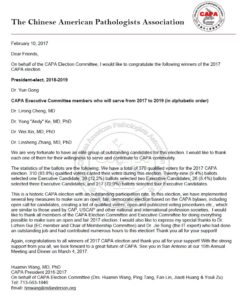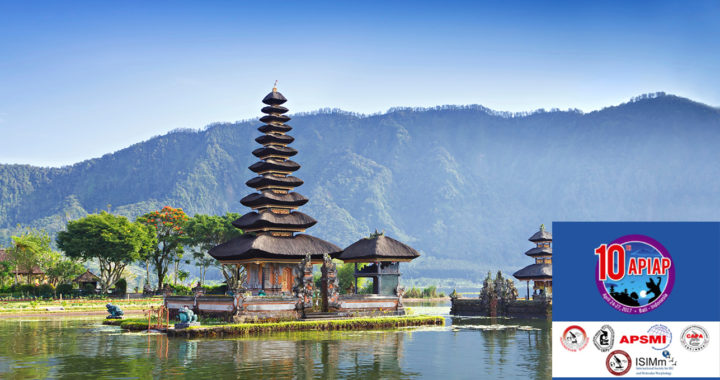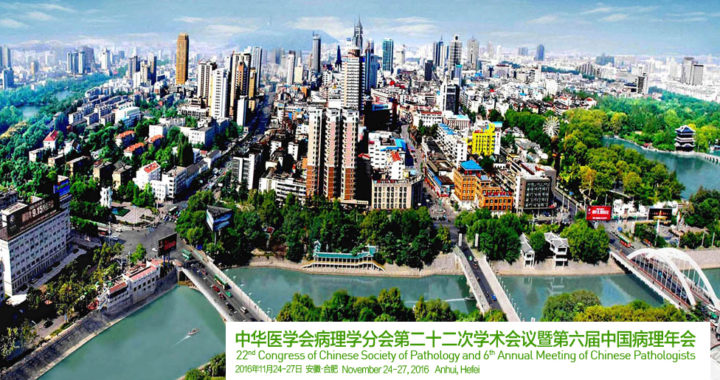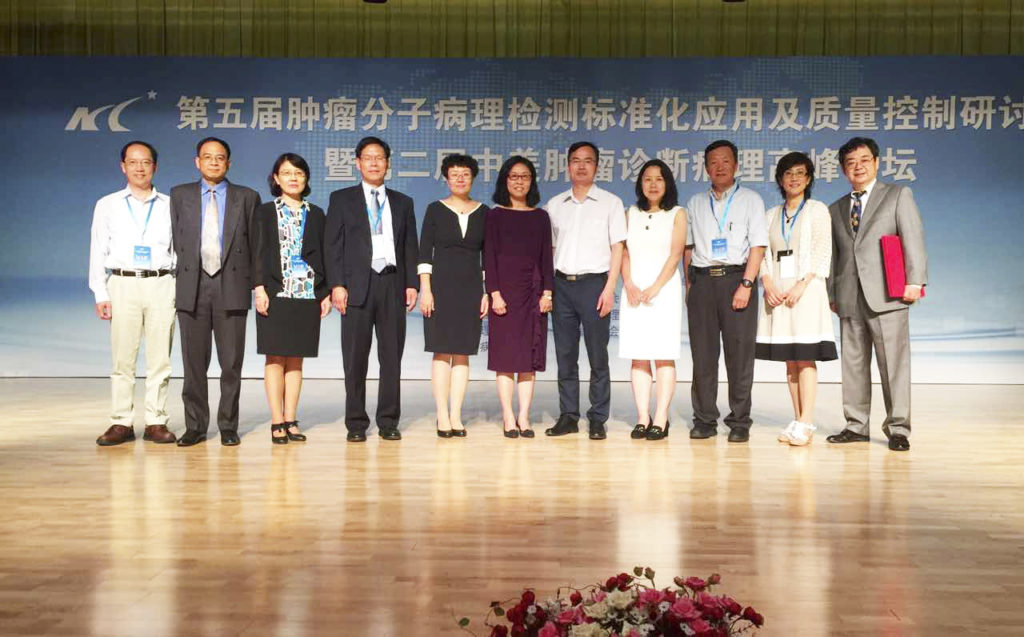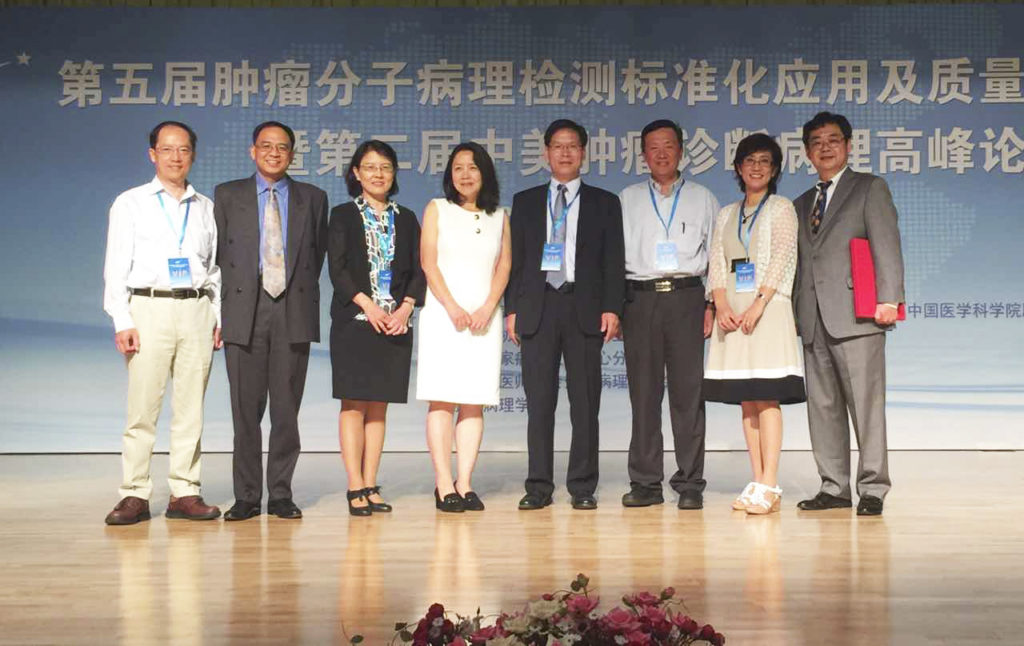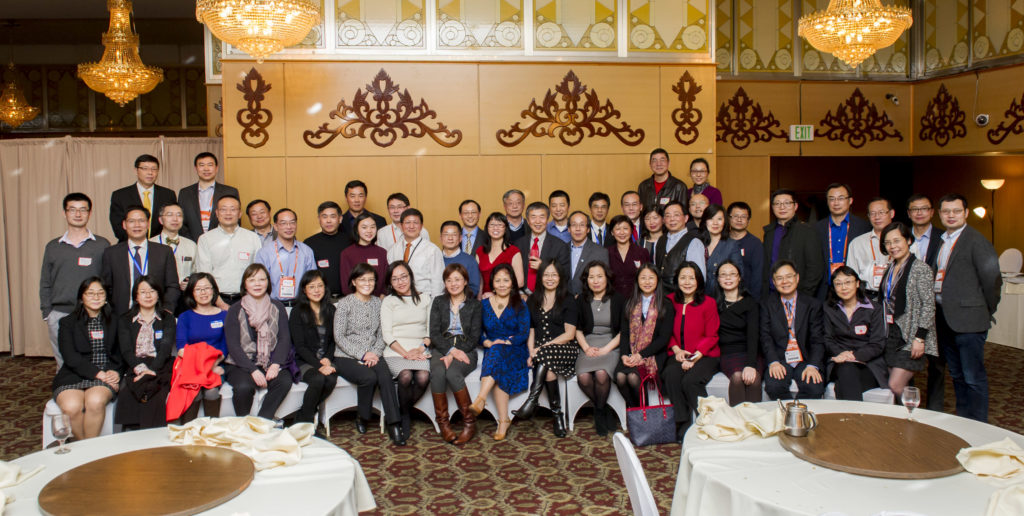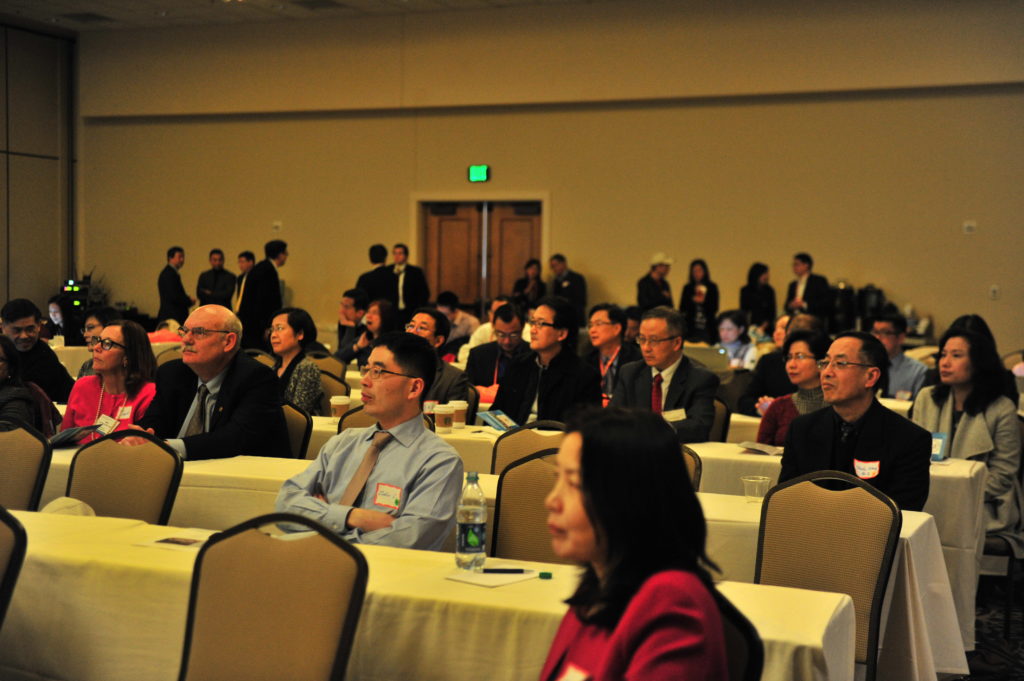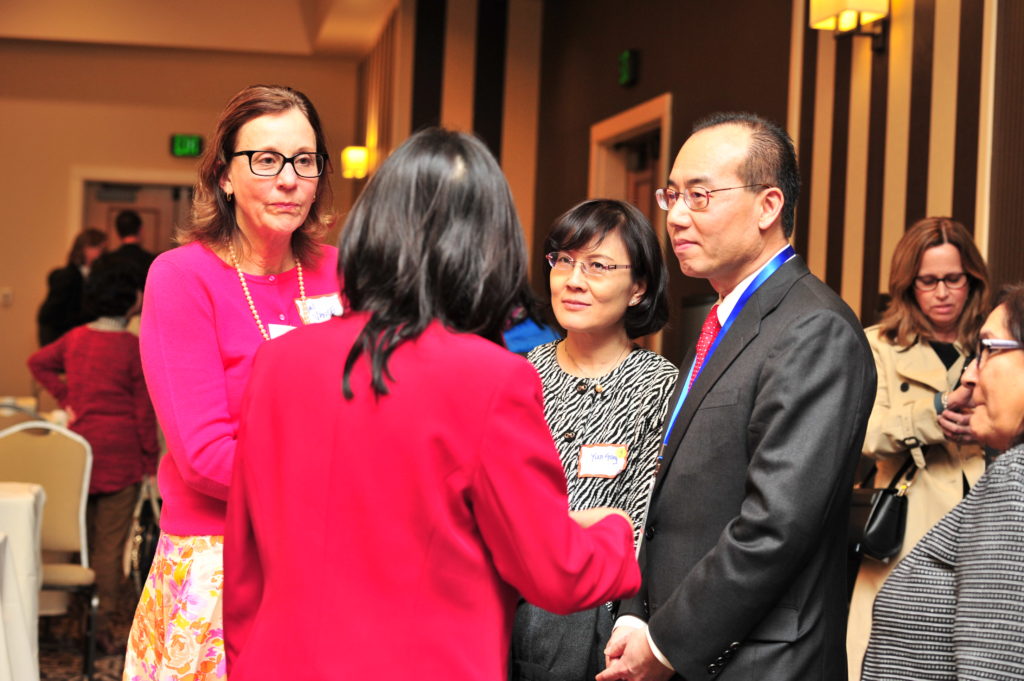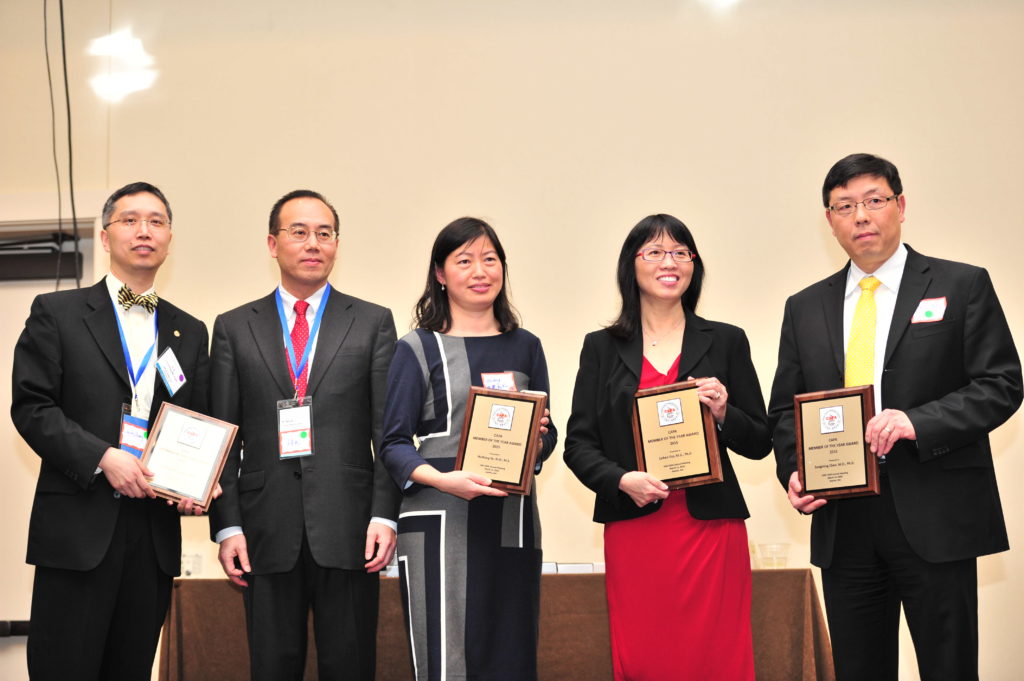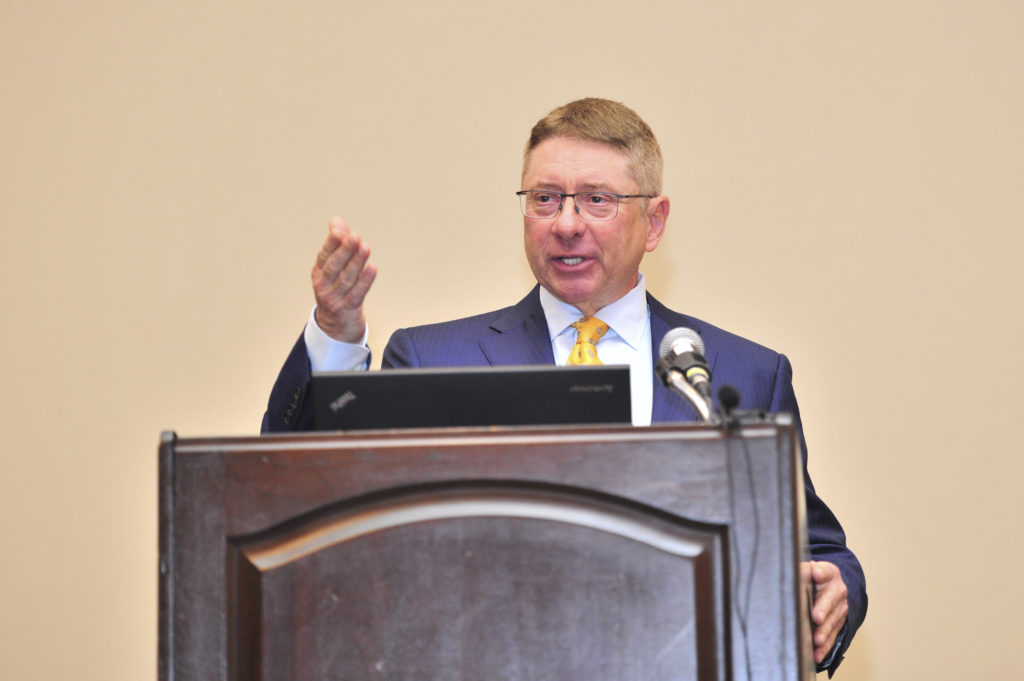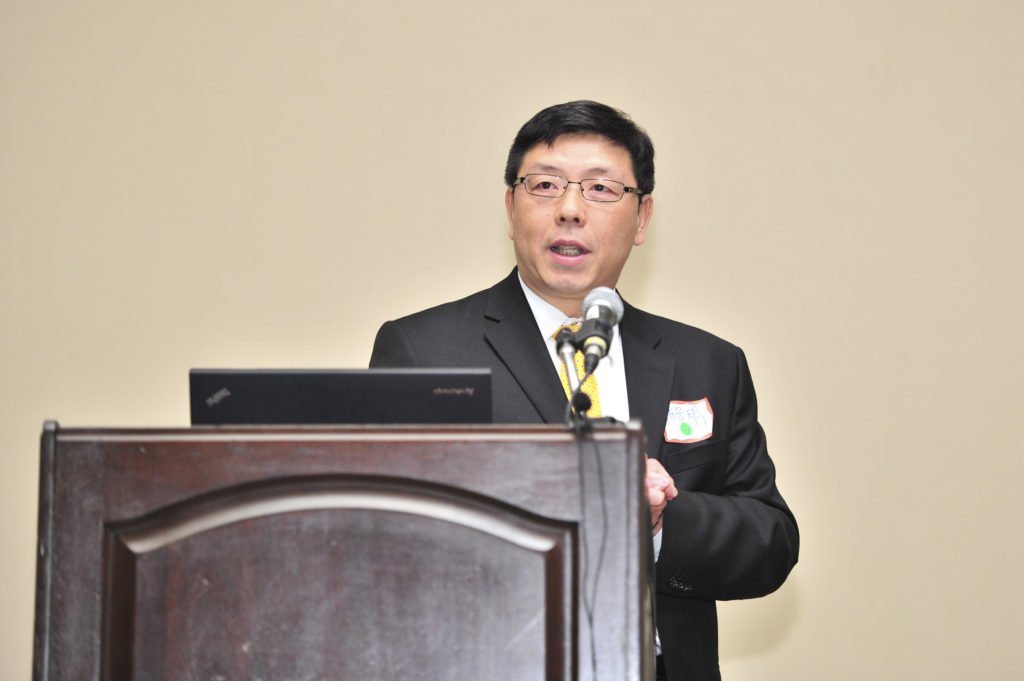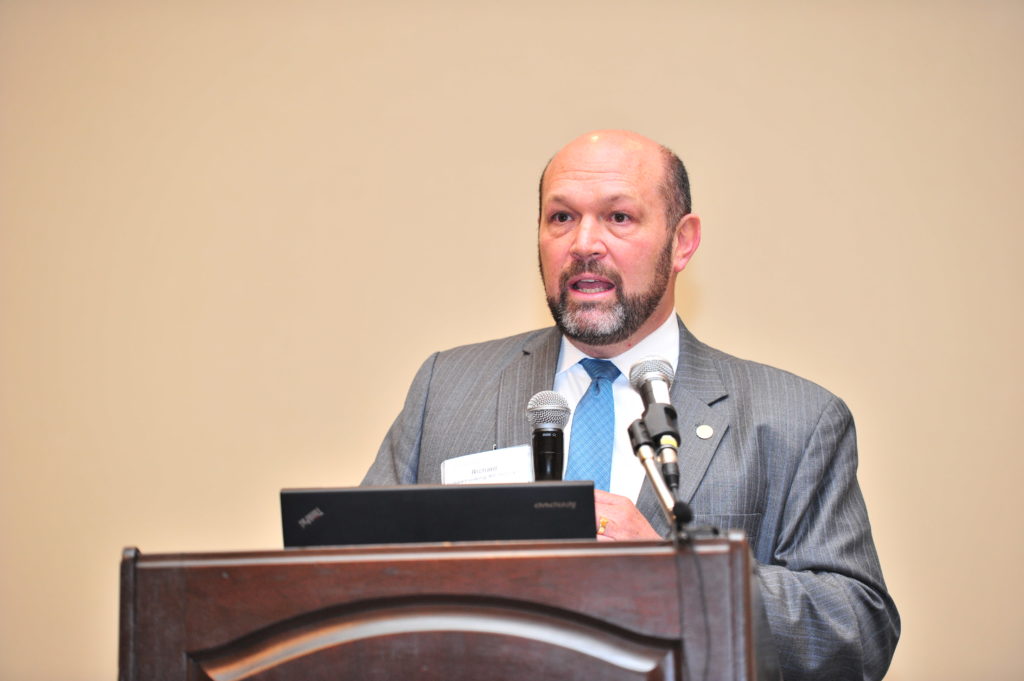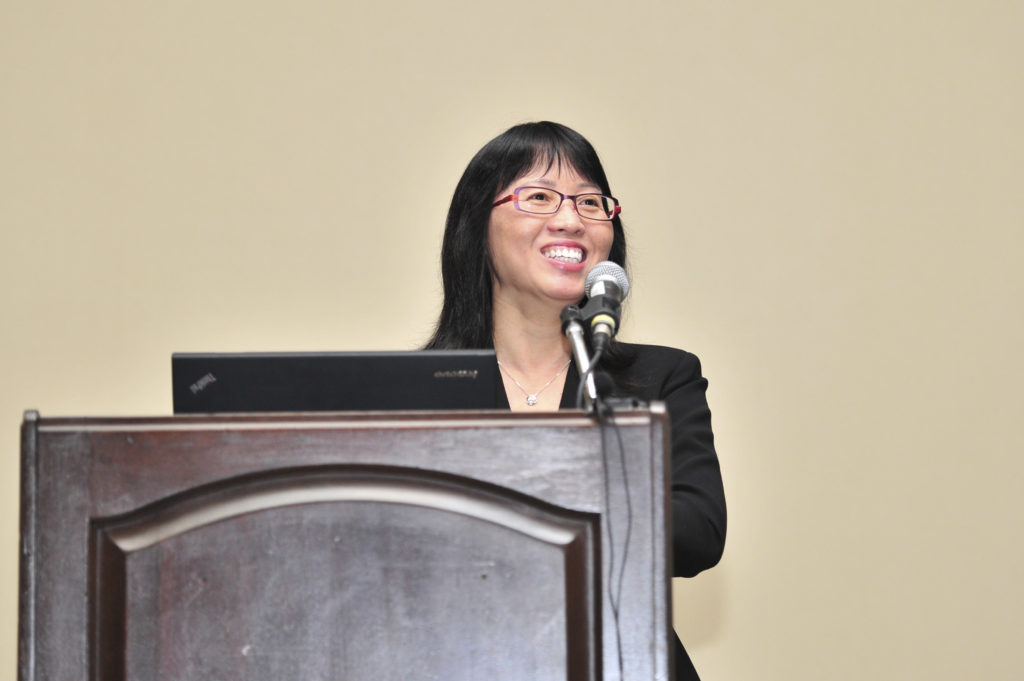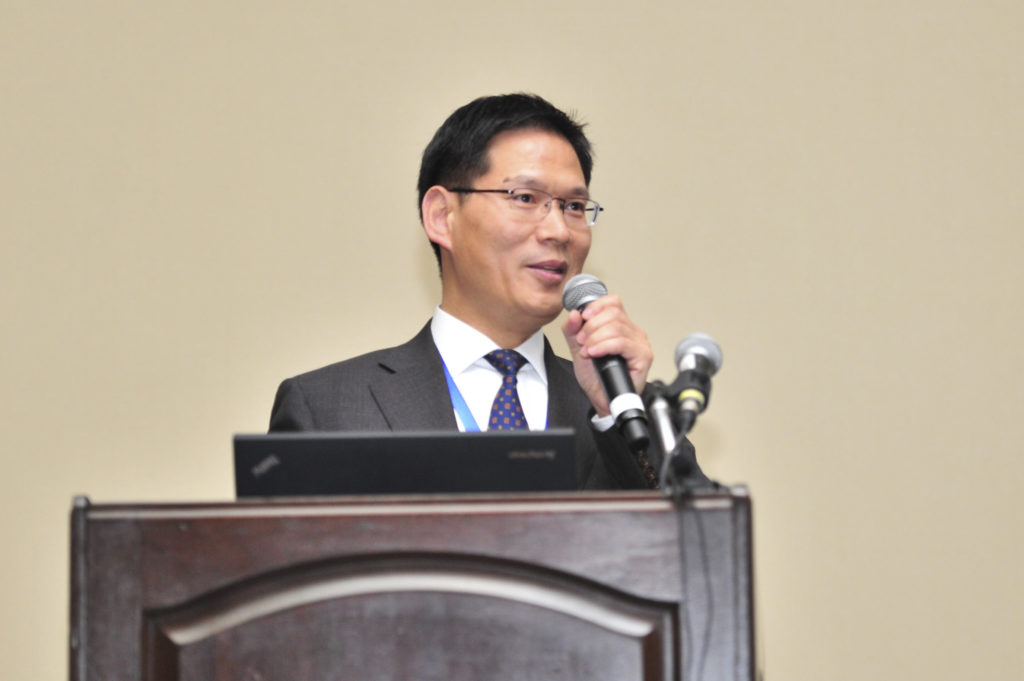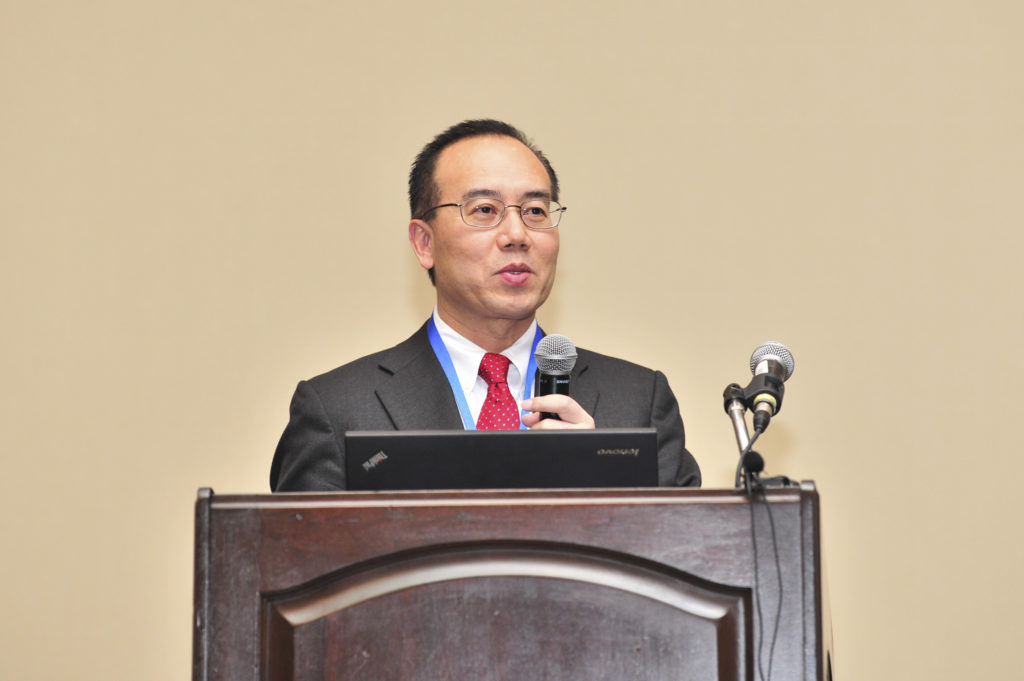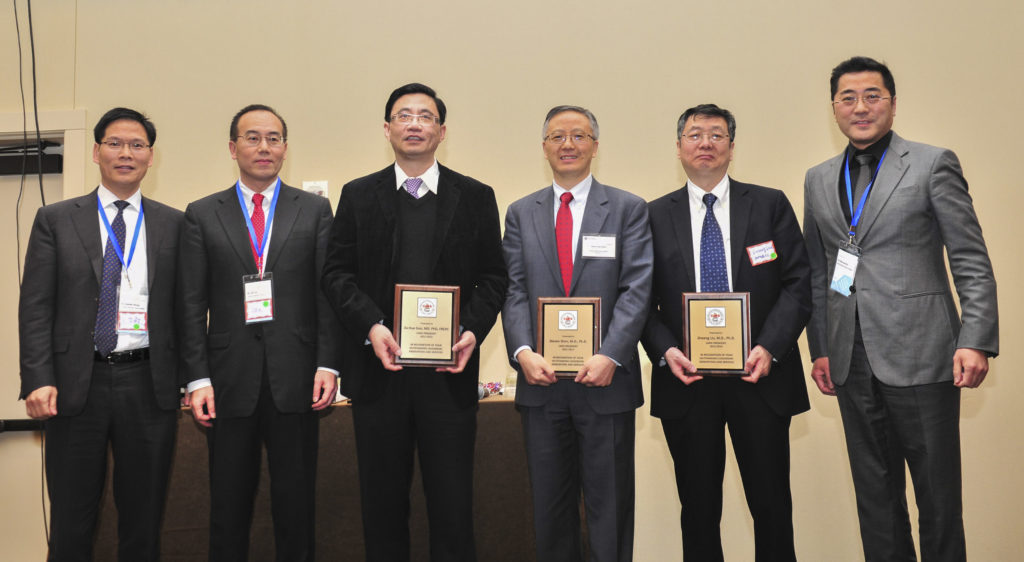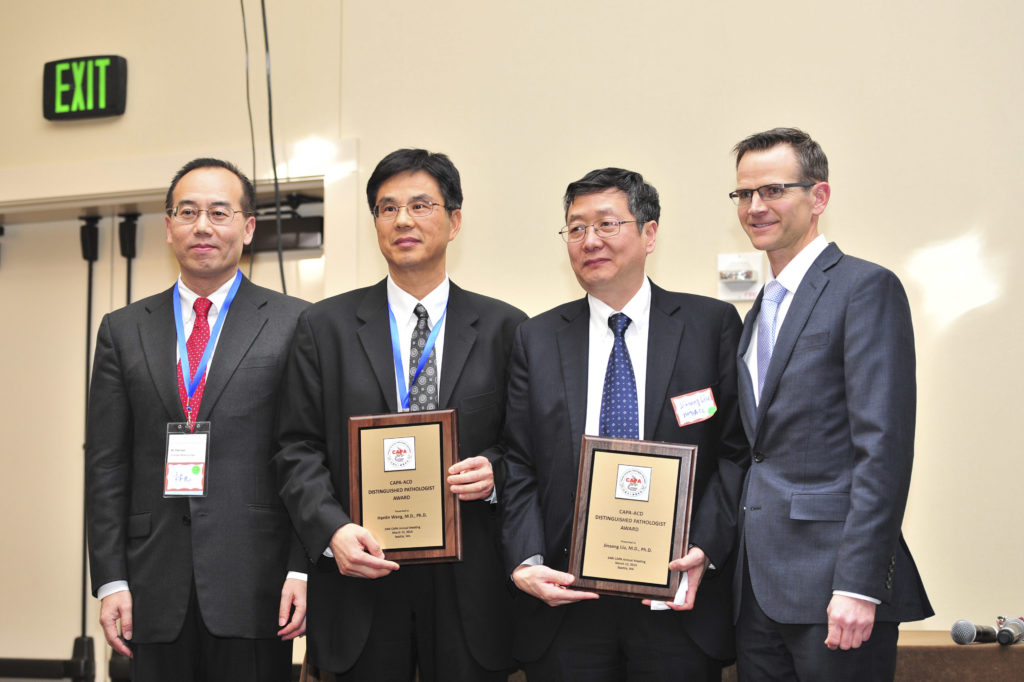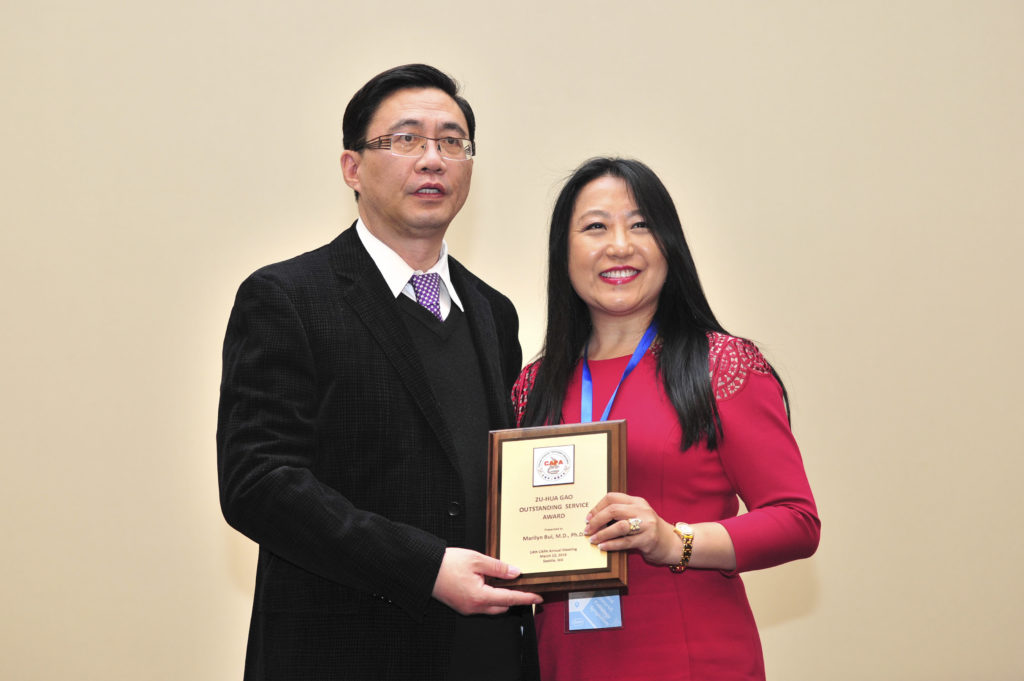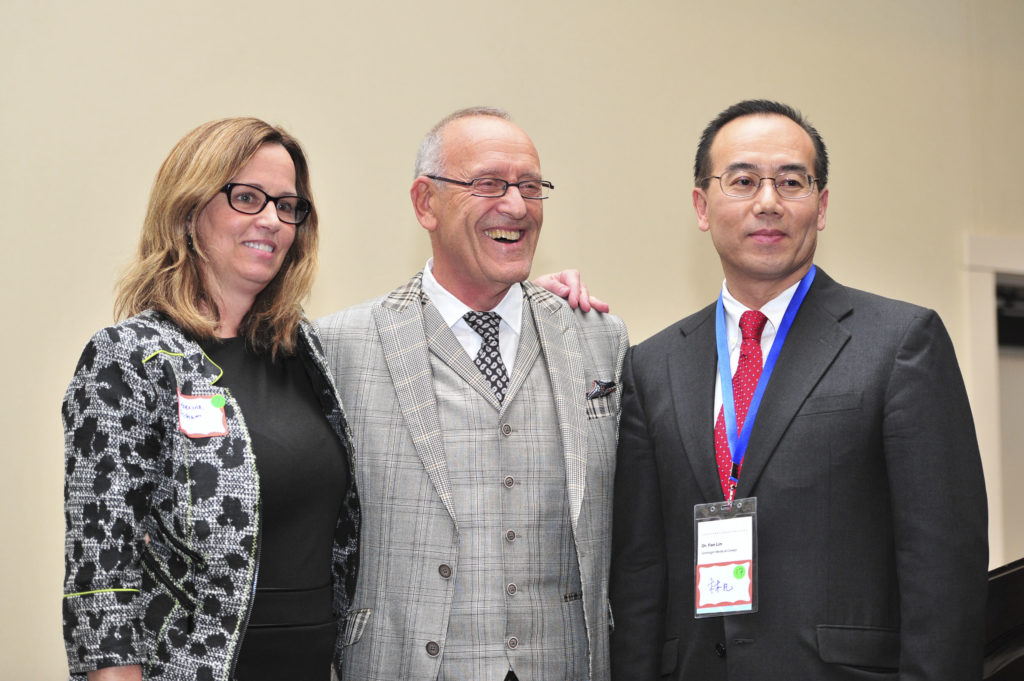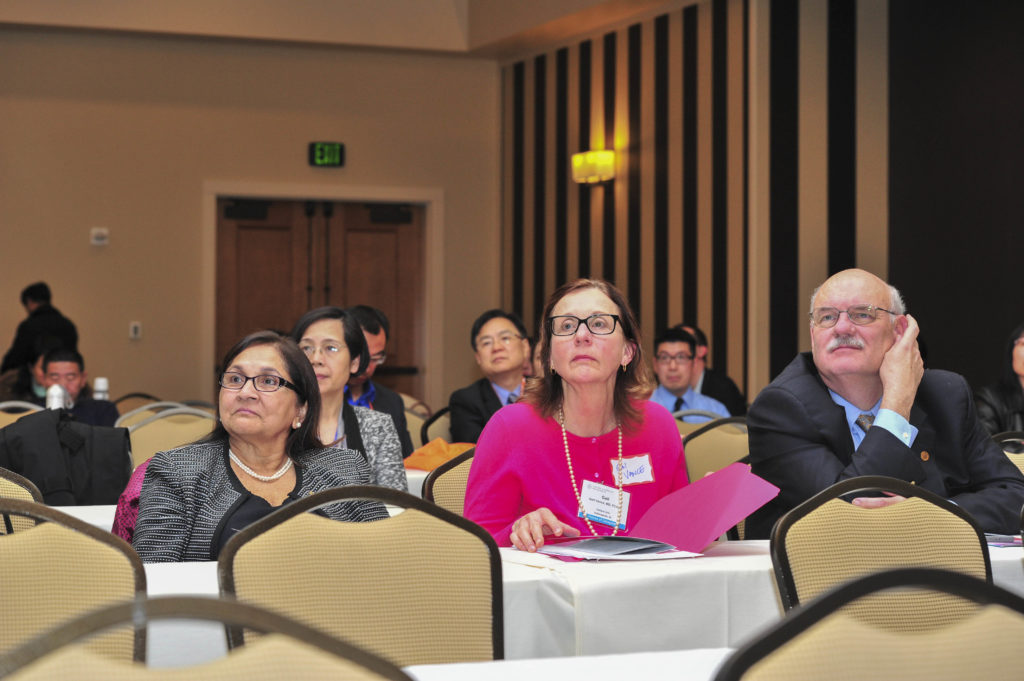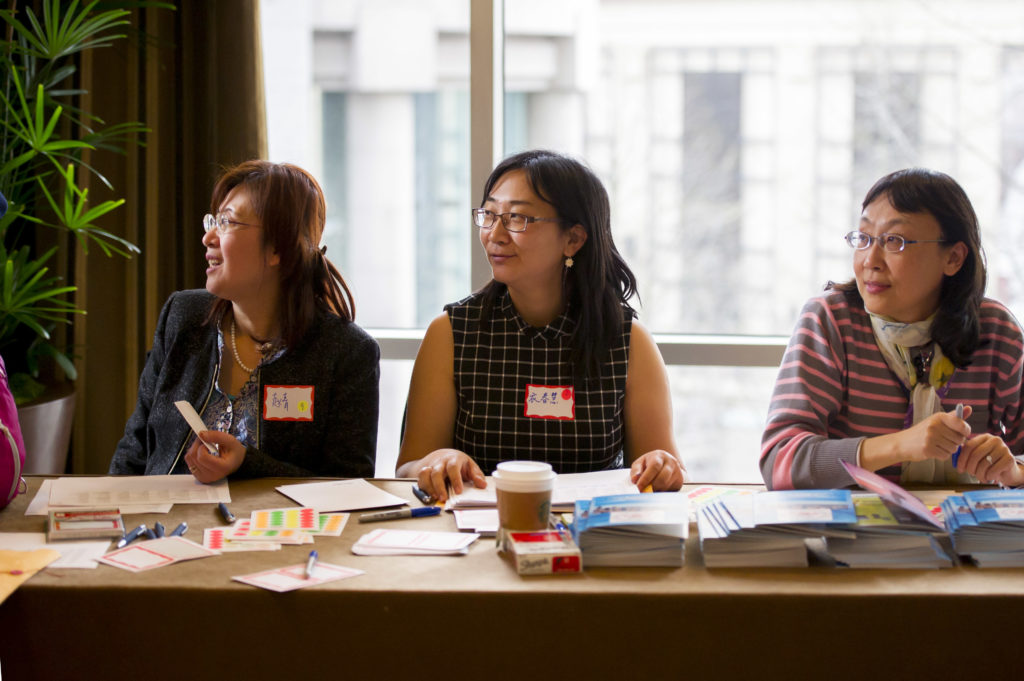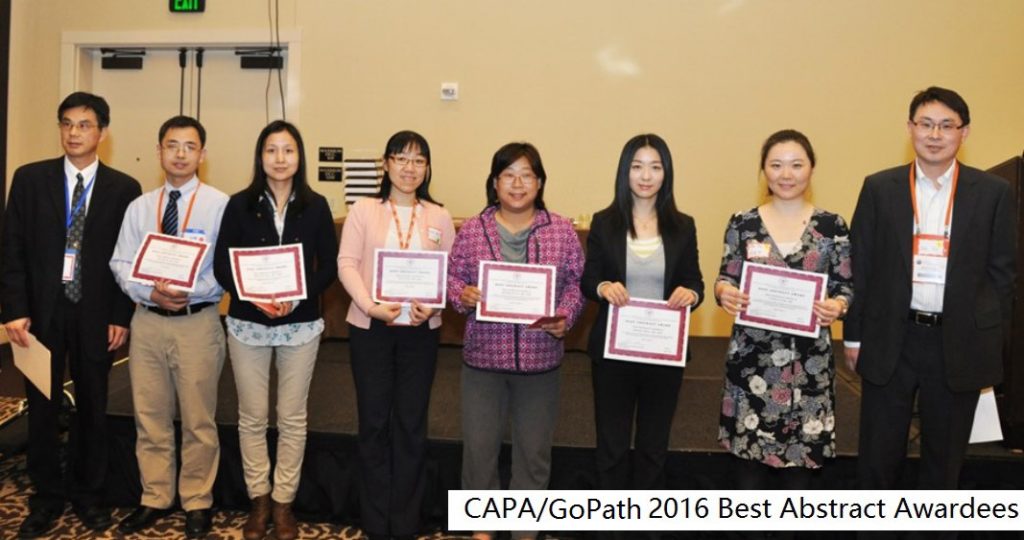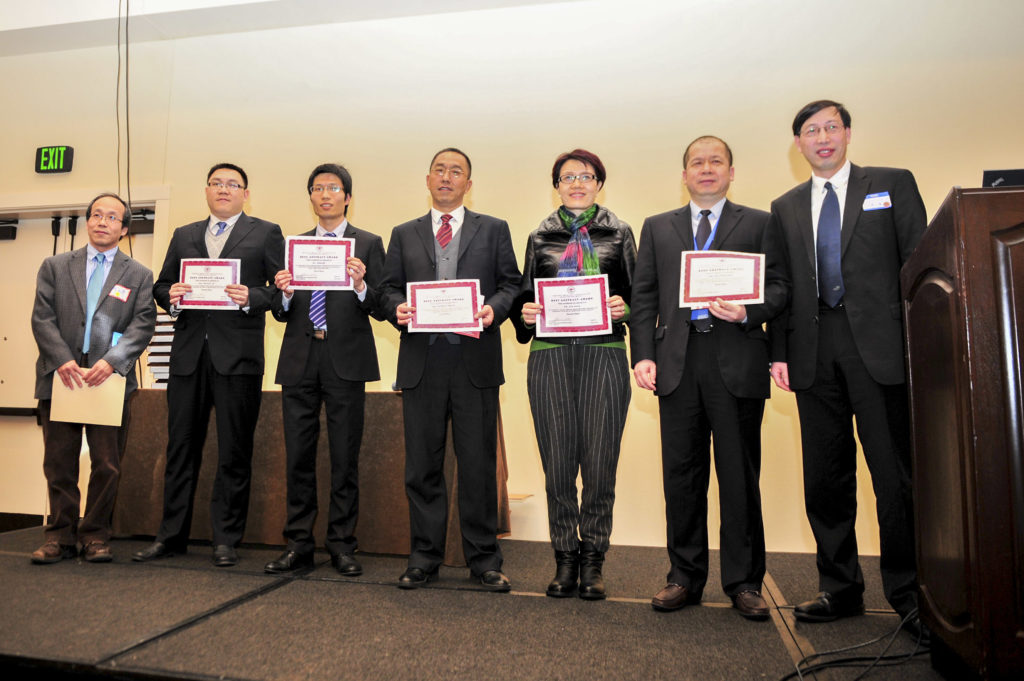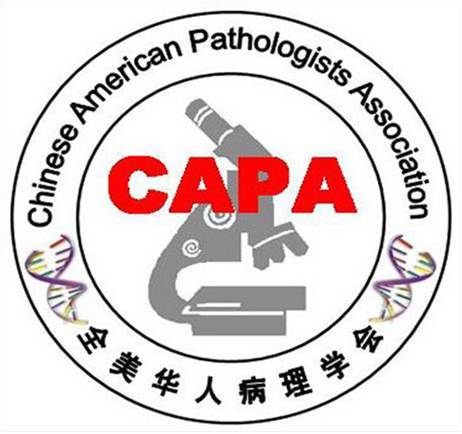The mission of the Chinese American Pathologists Association is to promote excellence in practice, education and research in pathology, as well as advocacy on behalf of Chinese pathologists. The objective of the CAPA/GoPath Best Abstract Award is to encourage and reward outstanding research contributions by our young pathologists.
Eligibility:
1) First-authored abstracts accepted for either platform or poster presentation at the 2017 USCAP Annual Meeting
2) Pathologists-in-training (current residents and fellows) of Chinese ethnicity in North America
Application:
Submit the accepted abstracts along with USCAP acceptance notices to Dr. Hanlin Wang by emailing to hanlinwang@mednet.ucla.edu, no later than January 15, 2017.
Selection:
The abstracts will be reviewed and scored in a blind fashion by members of the selection committee. Abstracts with the highest average scores will be selected as winners. There will be one winner for the first place, two for the second place, and three for the third place.
Recognition:
The awards will be presented to the winners at the Annual CAPA Business Meeting during the upcoming 2017 USCAP Annual Meeting in the afternoon of Saturday, March 4, 2017, in San Antonio. Each winner will receive a certificate with his/her name, a cash award, and recognition on the CAPA website. The winners must be present in the CAPA meeting in person; otherwise the awards will be revoked. The winners will be notified in the beginning of the February 2017, and are required to confirm their attendance to the CAPA meeting.
We encourage residents and fellows to become CAPA associate members (no membership fee for residents and fellows until the changes to the bylaws implemented). Please go to www.capaht.org for forms and instructions to submit membership application.
[Selection Committee]
Ruoqing Huang, MD, PhD, Associate Professor of SUNY, Regional Director of Cytopathology, EHC/QHC Mount Sinai Services; Haiyan Liu, MD, Director of Cytopathology, Geisinger Medical Center; Yan Peng, MD, PhD, Associate Professor, UT Southwestern Medical Center; Hanlin Wang, MD, PhD, Professor, University of California Los Angeles; Hua Yang, MD, Assistant Professor, University of Calgary; Xinmin Zhang, MD, Professor, Cooper Medical School of Rowan University; Chengquan Zhao, MD, Professor, University of Pittsburgh
